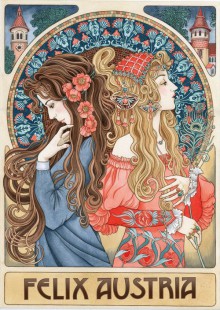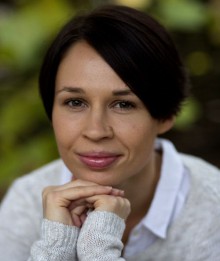It will be recalled that Polish film director Piotr Domalewski is going to make a historical drama, Felix Austria, based on the bestseller of the same name by Ukrainian writer Sofia Andrukhovych. The novel has been nominated for the Jean Monnet Prize, a French literary award. This prestigious prize has been awarded to European authors since 1995 for the best book written in or translated into the French language. The winners will be announced on June 13, Film.ua group’s press service reportsю
Also on the shortlist are such European writers as Chantal Thomas (France), the author of the novel Farewell, My Queen, filmed in 2012 by Benoit Jacquot; Sebastian Barry (Ireland), the author of The Secret Scripture, filmed in 2016; Alan Hollinghurst (UK), the winner of the Booker Prize 2004; Jose Carlos Llop (Spain); Jon Kalman Stefansson (Iceland), and Kjell Anders Westo (Sweden).
Andrukhovych’s novel Felix Austria was published in French translation by Noir sur Blanc. The book is also expected to come out in Slovakia and the US this year.
The novel is set in Stanislau (now Ivano-Frankivsk) in the late 19th-early 20th centuries. It is a city on the periphery of “happy Austria,” in which people live, suffer, fall in love, are keen on science and fraudulent shows of illusionists, entertain at balls, and hide secrets in carved-wood chests-of-drawers. Against the background of the epoch, which is going to create more and more myths for descendants, we can watch the destinies of two women that have intertwined as closely as tree branches – this inseparable tie does not allow them to live, breathe, or go. The protagonists are Stefania, a Ukrainian, on behalf of whom the story is told, and the noble lady Adel Anger, half a Pole and half a German.
“Telling a private story of my characters, whose chimerical cohabitation seemed to be a sweet fairytale, I was trying to hint that the floridly ornamented facade hides a fragile structure that can go to pieces at the slightest touch of external forces,” vikna.ua quotes Andrukhovych as saying. “The life of two women who belong to different social strata, come from different ethnic and cultural contexts, and share a common space, very impressive to look at, is one of the possible metaphors of the coexistence of the subjects of the Austro-Hungarian Empire.
“Felix Austria is the name of a boy who suddenly emerges in the process of narration. He appears from nowhere, has no history and voice. He symbolizes irrational and inexplicable forces that are impossible to foresee and assess in an analytical way but are very often a decisive factor which changes the course of history – be it the history of an individual or of a state.”








